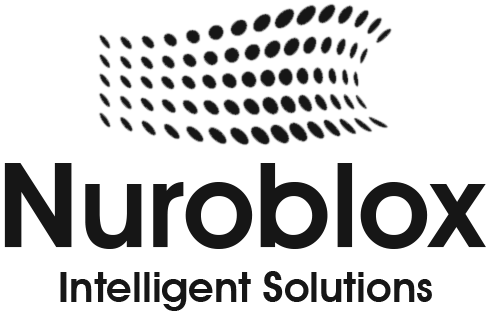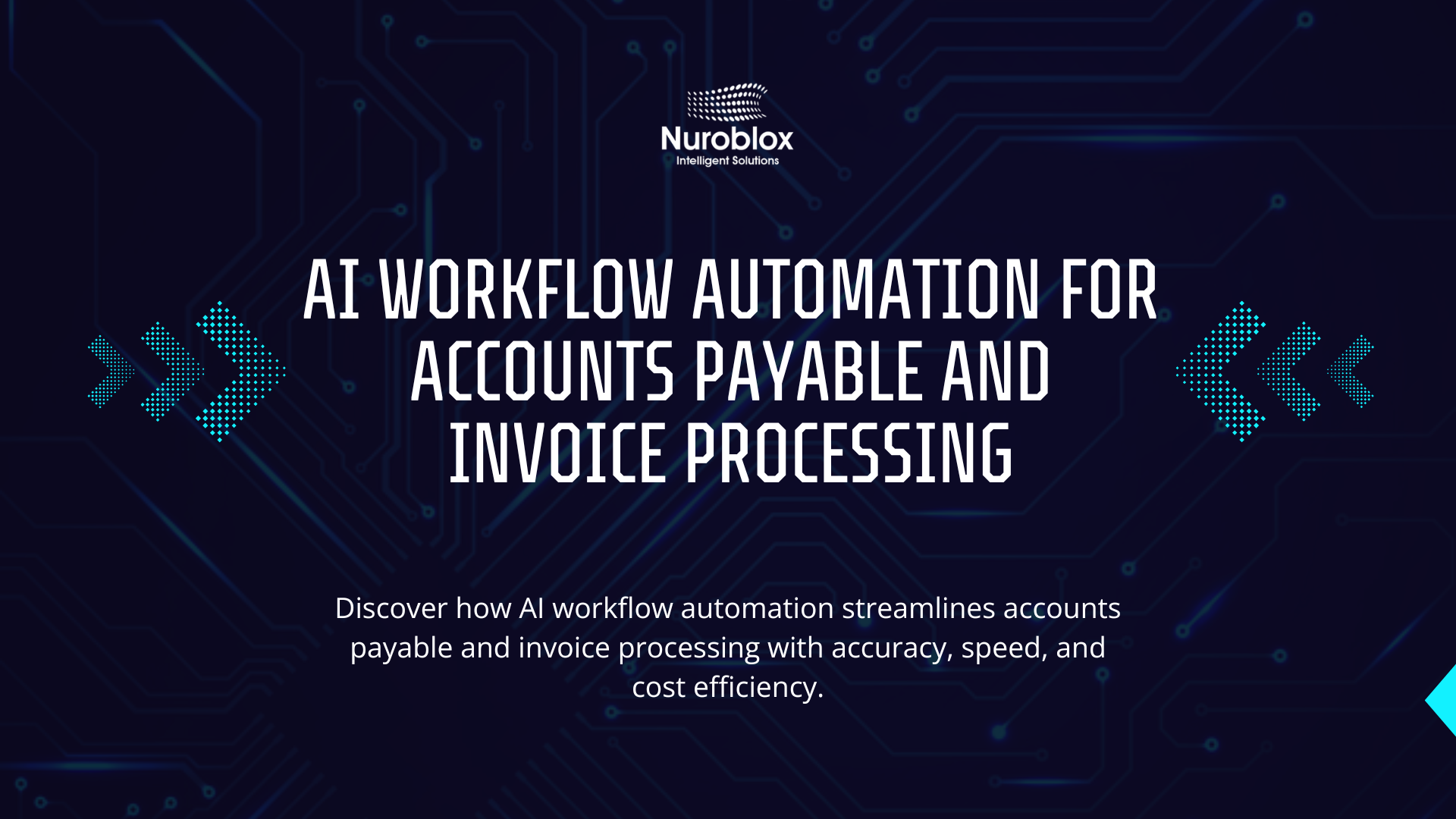AI Workflow Automation for Accounts Payable and Invoice Processing
In today’s rapidly evolving business environment, manual invoice processing and accounts payable management consume valuable time and resources while introducing costly errors. AI workflow automation for accounts payable and invoice processing transforms how finance teams handle routine tasks, enabling them to focus on strategic initiatives instead of data entry and invoice verification. This comprehensive guide explores how intelligent automation technologies are revolutionizing the accounts payable function, delivering measurable ROI through reduced processing times, improved accuracy, and enhanced operational efficiency. By the end of this guide, you’ll understand the core benefits, implementation strategies, and best practices for automating your accounts payable processes with cutting-edge AI technology.
What Is AI Workflow Automation for Accounts Payable?
AI workflow automation for accounts payable represents a transformative approach to managing invoice processing and payment operations using intelligent technologies. This encompasses the use of artificial intelligence, machine learning, optical character recognition (OCR), and robotic process automation (RPA) to automatically capture, validate, route, and process invoices with minimal human intervention.
Traditional accounts payable operations involve multiple manual steps – invoice receipt, data entry, three-way matching (purchase order, receipt, invoice), approval workflows, and payment processing. These repetitive tasks are time-consuming and prone to human error. AI-powered solutions eliminate these bottlenecks by automating end-to-end invoice workflows and enabling intelligent decision-making throughout the process.
The technology works by extracting relevant data from invoices across multiple formats like PDF, email, scanned documents, or EDI transmissions using advanced OCR and natural language processing. The system then validates extracted data against purchase orders and receipts, flags exceptions, routes approval workflows intelligently, and ultimately processes payments automatically when all compliance criteria are met.
Key Benefits of Accounts Payable Automation
Significant Cost Reduction and ROI
Organizations implementing AI workflow automation for accounts payable report impressive financial returns within the first year of deployment. Manual invoice processing typically costs between $5 to $15 per invoice depending on complexity and industry standards. Automated systems reduce this cost to under $1 per invoice, delivering 80-90% reduction in processing expenses.
Beyond per-invoice savings, companies eliminate redundant roles, reduce rework costs from errors, and avoid late payment penalties through accelerated processing cycles. Implementing intelligent automation typically achieves ROI within 6-12 months, with ongoing cost savings compounding annually. Finance teams reallocate freed-up resources toward invoice exception handling, vendor relationship management, and strategic financial analysis.
Improved Accuracy and Compliance
Human errors in invoice processing cost organizations thousands annually through duplicate payments, overpayments, and compliance violations. AI workflow automation dramatically improves accuracy by consistently applying validation rules, detecting duplicate invoices automatically, and flagging discrepancies before payment authorization.
The system maintains complete audit trails for every transaction, supporting regulatory compliance requirements such as SOX, GDPR, and industry-specific standards. Automated controls reduce fraud risk through systematic verification of vendor information, invoice legitimacy, and payment authority boundaries. Organizations achieve 99%+ accuracy rates in invoice processing when implementing intelligent automation solutions.
Accelerated Payment Cycles and Vendor Relations
Faster invoice processing times strengthen vendor relationships and improve cash flow management. Automated systems process invoices in hours rather than days, enabling early payment discounts from suppliers. Average payment cycles decrease from 30-45 days to 7-10 days, significantly improving cash flow and negotiating leverage with vendors.
Vendors benefit from consistent, predictable payment schedules, reducing their working capital needs and fostering stronger business partnerships. Organizations can leverage improved payment reliability as a competitive advantage when negotiating terms with key suppliers.
Enhanced Data Visibility and Decision-Making
AI-powered workflow automation provides real-time visibility into accounts payable operations, enabling finance leaders to make data-driven decisions. Dashboards display key metrics including invoice processing times, approval bottlenecks, vendor performance, spending patterns, and budget variance analysis.
These insights support strategic initiatives such as vendor consolidation, spend analysis optimization, and early payment discount capture. Finance teams transition from reactive processing to proactive financial stewardship.
How AI and Intelligent Automation Technologies Enable Invoice Processing
Intelligent Document Recognition and Data Extraction
Advanced OCR combined with machine learning enables systems to recognize and extract relevant data from invoices regardless of format, layout, or document quality. Unlike traditional OCR that struggles with poor-quality scans or unusual formats, intelligent document processing uses AI models trained on thousands of invoice variations to accurately extract vendor names, invoice numbers, dates, line items, and amounts.
The system learns from historical processing patterns, continuously improving accuracy over time. When encountering new vendors or invoice formats, the system adapts automatically, reducing the need for manual template configuration that plagues traditional automation tools.
Autonomous Agents for Workflow Intelligence
Modern autonomous agents powered by AI represent the next evolution in accounts payable automation. These intelligent systems move beyond simple rule-based automation to make autonomous decisions within defined parameters. An autonomous agent can evaluate invoice data, assess available purchase orders, check vendor compliance status, verify budget availability, and route approval requests to appropriate stakeholders; all without human intervention.
These agents continuously learn from outcomes, vendor behavior patterns, and exception handling decisions, becoming increasingly sophisticated in their decision-making capabilities over time. This creates a self-optimizing accounts payable function that adapts to organizational needs and evolving business conditions.
Machine Learning for Exception Handling
Not every invoice can be processed automatically, exceptions require intelligent handling. Machine learning models identify invoice exceptions such as missing line items, discrepancies between invoice and receipt quantities, or vendor information mismatches. The system prioritizes exceptions by risk level, routes them to appropriate specialists, and provides contextual information necessary for quick resolution.
Over time, the system learns which exceptions are most commonly resolved and how, enabling increasingly sophisticated automated handling of routine edge cases. This intelligent triage dramatically reduces time spent on exception management.
Workflow Orchestration for End-to-End Automation
Workflow orchestration coordinates complex, multi-step processes across systems and human actors. A sophisticated orchestration platform manages invoice receipt capture, automatic matching validation, approval routing based on invoice amount and vendor risk level, integration with financial systems, and payment processing; all as a coordinated workflow.
Orchestration platforms ensure approvals follow company policies, escalate exceptions appropriately, maintain compliance audit trails, and adapt workflows based on real-time business context.
Implementation Strategy for AI Workflow Automation
Phase 1 – Assessment and Planning
Begin by evaluating your current accounts payable process, identifying bottlenecks, and establishing baseline metrics including average processing time per invoice, error rates, cost per invoice, and exception rates. Map your current workflow to understand approval hierarchies, exception handling procedures, and system integrations required.
Engage stakeholders across finance, accounting, IT, and procurement to understand their needs and concerns. Identify quick wins like high-volume vendor categories or invoice types that represent significant processing volume and manual effort with predictable structures.
Phase 2 – Technology Selection and Pilot Implementation
Evaluate solutions based on accuracy rates, integration capabilities, scalability, ease of implementation, and total cost of ownership. Many organizations begin with a pilot program focusing on a single vendor category or department to validate ROI assumptions before enterprise-wide deployment.
During pilot implementation, configure the system with your invoice data, establish matching rules, set up approval workflows, and conduct intensive testing. Train pilot users thoroughly and gather feedback for refinement before broader rollout.
Phase 3 – Rollout and Optimization
After successful pilot validation, expand implementation to additional vendor categories and departments progressively. Establish clear governance including who monitors system performance, how exceptions are escalated, and how continuous improvement decisions are made.
Continuously monitor key performance indicators, gather user feedback, and optimize workflows based on real-world usage patterns. Most organizations find significant optimization opportunities within the first 90 days of broader deployment.
Common Challenges and How to Address Them
Legacy System Integration
Many organizations struggle integrating AI workflow automation with legacy ERP systems lacking modern APIs. Address this through middleware solutions, API development, or careful vendor selection prioritizing your specific system environments. Some solutions specialize in specific legacy systems, offering pre-built integrations that accelerate implementation.
Vendor Compliance and Invoice Format Variations
Different vendors submit invoices in varying formats, structures, and quality levels. Robust solutions include vendor onboarding programs encouraging electronic invoicing standards, comprehensive OCR capabilities handling diverse formats, and exception handling processes for unusual submissions.
Change Management and User Adoption
Finance teams accustomed to traditional processes may resist automation. Successful implementations involve clear communication about benefits, dedicated training, demonstrating quick wins, and addressing legitimate concerns about job security through redeployment to higher-value activities.
Ensuring Data Security and Compliance
Accounts payable systems handle sensitive financial data requiring robust security measures. Select solutions with enterprise-grade encryption, role-based access controls, comprehensive audit logging, and compliance certifications matching your regulatory requirements.

Large Enterprise Manufacturing Company
A multinational manufacturing company processing 500,000+ invoices annually from 10,000+ vendors implemented AI workflow automation across three global finance centers. Results included 85% reduction in invoice processing costs, reduction of processing time from 28 days to 6 days, and 99.2% accuracy rate. The company reallocated 25 full-time employees from invoice processing to accounts payable analysis and strategic vendor management roles.
Mid-Market Professional Services Firm
A 500-person professional services company struggling with invoice processing delays and frequent payment errors deployed intelligent automation focusing on external vendor invoices and internal expense reimbursement processing. Processing costs decreased from $8.50 to $1.20 per invoice, with average processing time dropping from 14 days to 2 days and error rates declining from 12% to 1%.
Retail Organization with Multi-Channel Vendors
A large retailer receiving invoices from thousands of suppliers including invoices generated through EDI, email, portals, and paper; implemented an AI-powered invoice processing system handling multiple formats transparently. The solution processed 95% of invoices automatically after configuration, with remaining exceptions requiring minimal human intervention and quick resolution.
Featured Snippet Opportunity – Quick Answer Section
How does AI workflow automation reduce accounts payable processing costs?
AI automation reduces accounts payable costs through –
- Eliminating manual data entry, systems extract invoice data automatically with 99%+ accuracy
- Reducing processing time per invoice, automated workflows process invoices in hours instead of days
- Decreasing error rates, intelligent matching and validation prevent duplicate payments and overpayments
- Minimizing staffing needs, fewer employees needed for routine processing tasks
- Enabling early payment discounts, faster processing allows organizations to capture supplier discounts
Conclusion – Transform Your Accounts Payable Operations
AI workflow automation for accounts payable and invoice processing represents a fundamental transformation in how finance organizations manage routine financial operations. By implementing intelligent automation, finance teams eliminate costly manual processes, dramatically improve accuracy and compliance, accelerate payment cycles, and reallocate skilled resources to strategic value-creation activities.
The technology is mature, implementation strategies are proven, and ROI is well-established across industries and organization sizes. Whether you’re a large enterprise processing hundreds of thousands of invoices or a mid-market company looking to improve operational efficiency, intelligent automation delivers measurable benefits starting within the first few months of deployment.
Start your AI workflow automation journey today by assessing your current accounts payable processes, identifying high-value automation opportunities, and partnering with experienced vendors who understand your industry requirements. The finance teams that invest in AI automation for invoice processing now will gain competitive advantages through superior efficiency, enhanced compliance, and the ability to make faster, more data-driven financial decisions.


